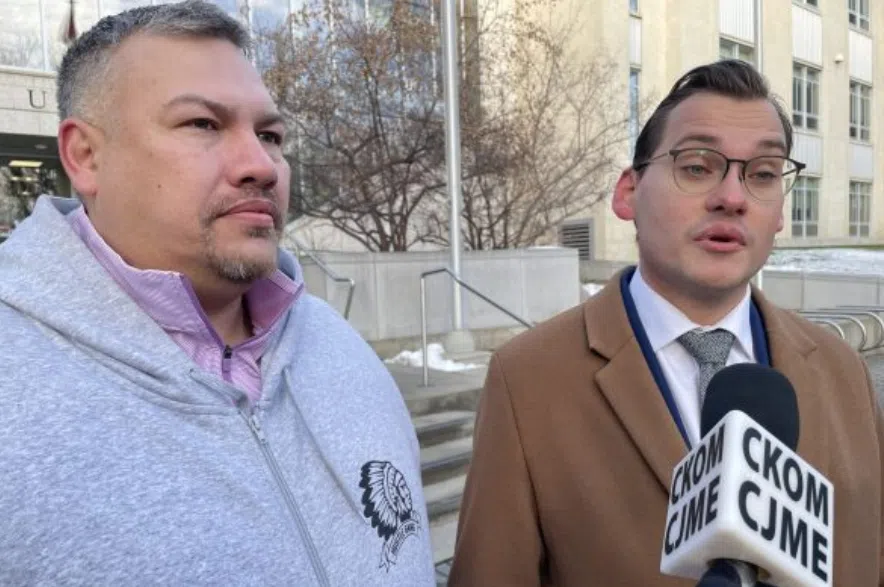A recent Federal Court ruling could mean greater financial transparency in First Nations communities across Canada.
Years ago, Hans McCarthy, an Indigenous activist from Frog Lake First Nation in Alberta, reached out to the Canadian Taxpayers Federation (CTF) after seeing a story about money missing from his community’s trust fund. It gets its money from band revenues, which come from the natural resources on the community’s land.
Read more:
- Northwest First Nations communities consider Sask. Marshals for policing partnership
- ‘One of the biggest scandals in First Nations history’: Arcand
- FSIN breaks silence after forensic audit finds $34M in ‘questionable’ spending
In 2013, the trust fund had more than $100 million in it, according to the CTF’s Prairie Director Gage Haubrich. But by 2024 that had dwindled to less than $9 million.
Haubrich said the organization filed access to information requests on behalf of McCarthy, trying to find the Band Council resolutions on where the money was spent.
“But the federal government refused to disclose those records,” Haubrich said.
So, in 2022 the pair decided to take the government to court.
According to Haubrich, McCarthy’s court application argued the federal government and local First Nations’ leaders have a duty to provide financial transparency when band members request it.
Three years later the Federal Court agreed, and McCarthy should be getting documents from Indigenous Services Canada within 30 days about the trust fund.
In a community of that size, McCarthy said he has his suspicions of where the money went, but the records will provide the answer.
For McCarthy, having financial transparency would mean “better everything,” like housing, education, programming, and even better governance.
“Lots of the money is gobbled up on the Chief and council level and when you get rid of that corruption out there and you have transparency, it gives information to band members on who to vote for,” he said.
Since the decision came out, McCarthy said he’s heard from a lot of people, including tribal members in the U.S.
“So it’s pretty big news in First Nations country,” he said.
A precedent-setting case
This case goes beyond just getting answers for McCarthy.
According to Haubrich, the victory “sets the precedent that when band members go looking for these types of documents to find answers, the federal government has a duty to disclose them.”
He said other First Nations band members in Canada wanting similar financial documents showing the receipts of their community’s spending will now have a much easier time getting them.
While Haubrich said the CTF is always having discussions with other First Nations communities, he didn’t disclose if the organization was part of any similar cases right now.
Read more:
- Northwest First Nations communities consider Sask. Marshals for policing partnership
- ‘One of the biggest scandals in First Nations history’: Arcand
- FSIN breaks silence after forensic audit finds $34M in ‘questionable’ spending











